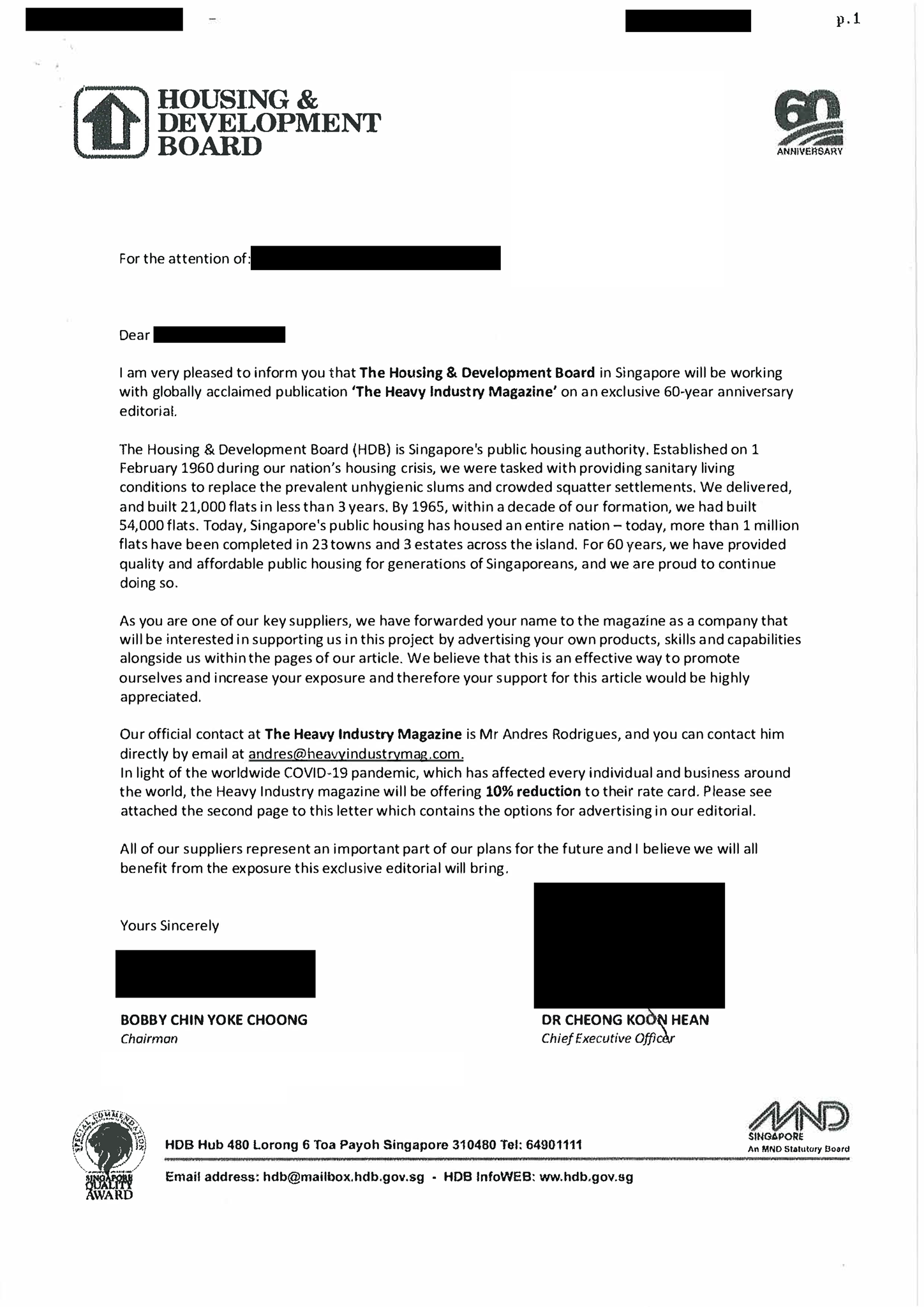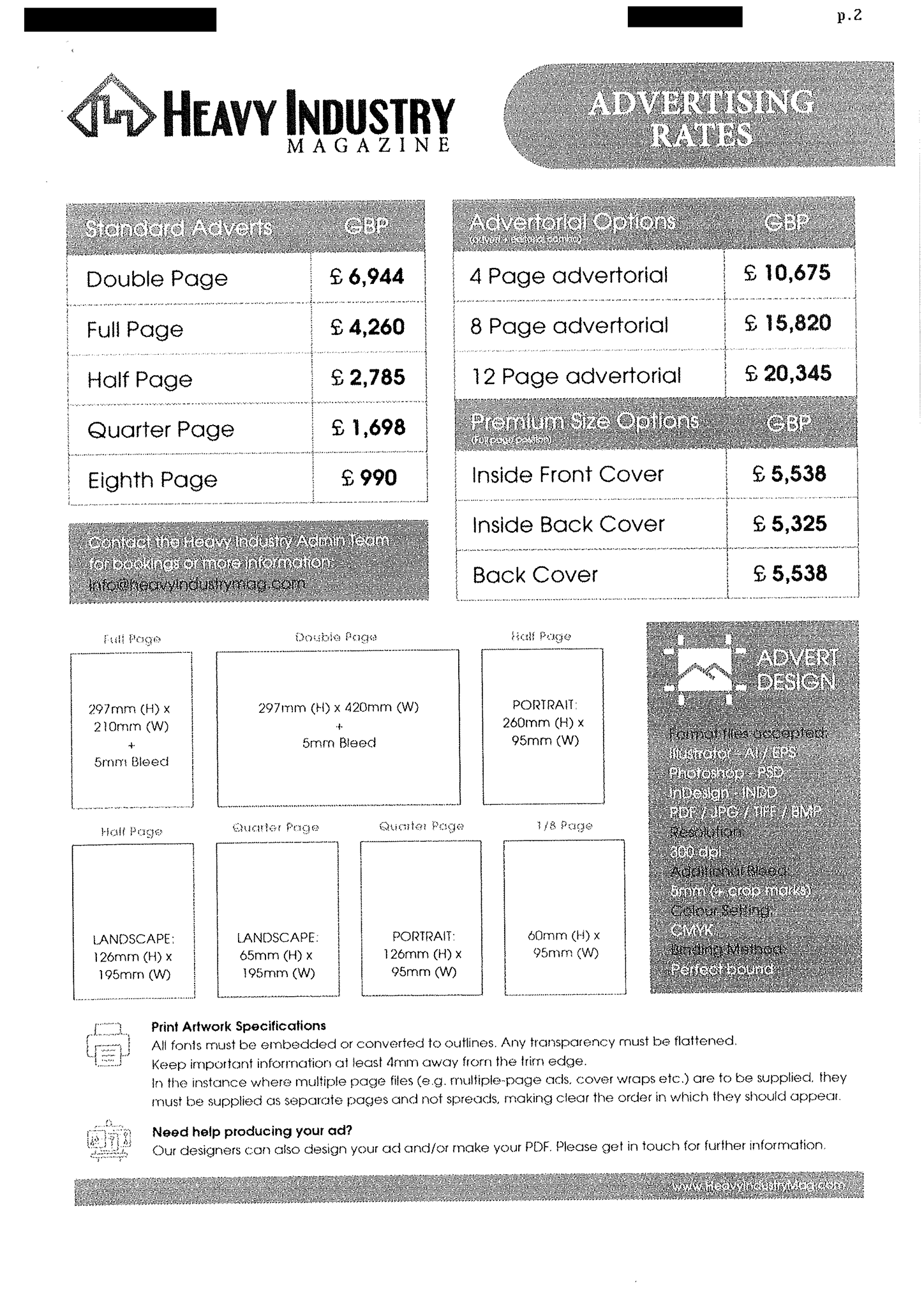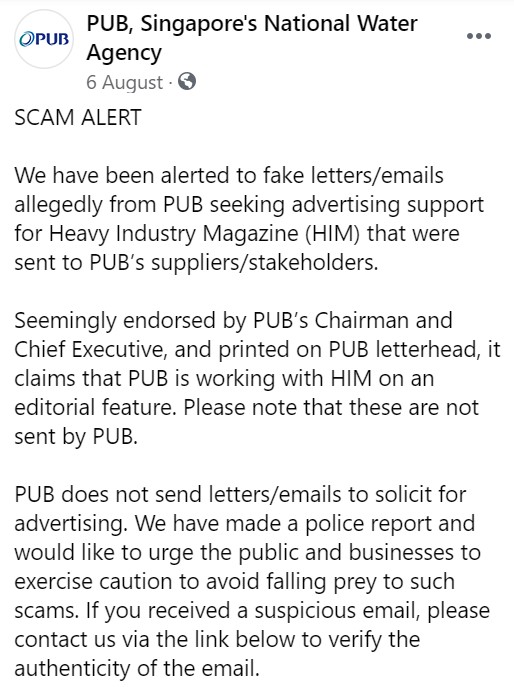Scammers are getting increasingly sophisticated in their tactics these days. They can impersonate themselves to be your friends, or sometimes even family members, in order to solicit money from you.
In fact, the number of social media impersonation scams has spiked from 83 cases from January to June 2019, to 1,175 cases in the first half of 2020.
In this particular case, the scammers upped one level of their impersonation skills.
They disguise themselves to be representatives from the Housing Development Board (HDB).
Magazine Approached Companies for Advertising Opportunities using HDB’s name
According to the Facebook post shared by the HDB, fake letters allegedly from them were sent out to potential companies to advertise in a magazine called The Heavy Industry Magazine.
For info: [SCAM ALERT]We have been alerted to fake letters allegedly from HDB seeking advertising support for Heavy…
Posted by Housing & Development Board on Friday, 9 October 2020
Lest you can’t read:
For info: [SCAM ALERT]

We have been alerted to fake letters allegedly from HDB seeking advertising support for Heavy Industry Magazine (HIM).
The letters bear forged signatures of HDB’s Chairman and CEO, and appear to use HDB’s letterhead. The letters also claimed that HDB is working with HIM on an editorial to mark HDB’s 60th anniversary this year. In fact, the 60th anniversary logo carried on the letters is not HDB’s.
HDB does not send letters to solicit for advertising. We have made a police report and would like to urge the public to exercise caution to avoid falling prey to scams.
If you receive a suspicious email which claims to be from HDB, you may contact us to verify the authenticity of the email: www.hdb.gov.sg/efeedback
For scam-related advice, visit http://www.scamalert.sg.
Here’s a look at the letter allegedly sent out by the HDB:

Looks like a real legit letter with the HDB’s letterhead and signatures of the organisation’s Chairman and CEO right?
In the letter, it was stated that the HDB is working with The Heavy Industry Magazine on an exclusive 60-year anniversary editorial.
It goes on to provide a background of HDB’s history.
Following that, it was mentioned that the letter’s recipient name has been forwarded to the magazine as a company which will be interested in advertising with the publication.
The letter then goes on to provide the contact details of the magazine’s person in charge.
A 10% discount on the magazine’s advertising rate was then offered, “in light of the worldwide Covid-19 pandemic, which has affected every individual and business around the world.”
An equally legit advertising rate card was attached for the recipient’s reference:

HDB has Lodged Police Report for Scam Incident
The HDB has since lodged a police report.
They clarified that the 60th anniversary logo shown on the letter does not belong to them and also highlighted that the organisation does not send letters to solicit for advertising.
Similar Incident Happened to the PUB
Seems like this impersonation scam wasn’t an isolated incident.
According to Marketing Magazine, the Public Utilities Board (PUB) also reported a similar incident, whereby The Heavy Industry Magazine sent out letters to PUB’s suppliers and stakeholders to seek advertising support.
The PUB shared this incident on their Facebook page on 6 August 2020.

Kind of a deja-vu moment as the letter looks real legit with PUB’s letterhead and the organisation’s chairman and CEO’s signatures were shown.

The letter also states that the PUB is working with The Heavy Industry Magazine on a major editorial feature.
In a similar fashion, the letter then stated that the letter’s recipient name has been forwarded to the magazine to advertise with the publication.
PUB has clarified that the letters were not sent by them. They have also lodged a police report on this.
A simple online check on The Heavy Industry Magazine would result in a rather legit website; however, all it takes is a few seconds to realise that it’s a scam.
Firstly, it’s not a secured website (http instead of https), and secondly, there are broken in major parts of the website.
You can watch these videos we’ve done in collaboration with the Singapore Police Force to learn more about various scams (and also subscribe to our YouTube channel for more informative and entertaining videos, please!):




